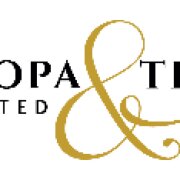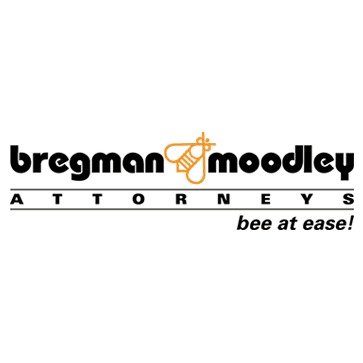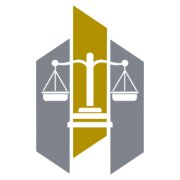Best Corporate Governance Lawyers in Johannesburg
Share your needs with us, get contacted by law firms.
Free. Takes 2 min.
List of the best lawyers in Johannesburg, South Africa
South Africa Corporate Governance Legal Articles
Browse our 2 legal articles about Corporate Governance in South Africa written by expert lawyers.
- South Africa POPIA Compliance Checklist for Global Firms
- International firms must comply with POPIA if they process personal information within South Africa or use automated or non-automated means situated in the country. Compliance is built upon eight specific conditions, ranging from accountability to data subject participation. Every organization must appoint and register an Information Officer with the South... Read more →
- Resolving Shareholder Deadlocks in South African Companies
- Shareholders in South African private companies can proactively prevent deadlocks by including customized tie-breaker provisions in their Memorandum of Incorporation (MOI). The "Shotgun Clause" is a high-stakes exit mechanism that forces one party to buy out the other at a set price, ensuring a clean break when management is paralyzed.... Read more →
About Corporate Governance Law in Johannesburg, South Africa
Corporate governance refers to the systems, principles, and processes by which companies are directed and controlled. In Johannesburg, South Africa, which is recognized as the country's financial hub, corporate governance is a vital aspect of running a business lawfully and transparently. South African corporate governance frameworks are largely influenced by the King IV Report on Corporate Governance, as well as laws such as the Companies Act 71 of 2008. Good corporate governance in Johannesburg ensures that companies are accountable to stakeholders, comply with regulations, and maintain ethical standards. Companies are expected to build sustainable operations and act in the best interests of shareholders, employees, customers, and the community.
Why You May Need a Lawyer
There are several scenarios in which you may require the assistance of a legal professional with expertise in corporate governance in Johannesburg:
- Establishing new companies or restructuring current corporate entities to ensure legal compliance.
- Drafting or updating internal policies, constitutions, and shareholder agreements.
- Managing conflicts among shareholders, directors, or other stakeholders.
- Guidance on regulatory compliance or responding to investigations by authorities.
- Dealing with takeovers, mergers, or acquisitions involving governance obligations.
- Directors seeking advice on their duties and risks to avoid personal liability.
- Responding to allegations of unethical or illegal corporate conduct.
- Protecting whistleblowers or employees raising concerns about management practices.
In each of these situations, legal guidance can help prevent infractions, protect reputations, and ensure that the business is managed prudently and within the law.
Local Laws Overview
Corporate governance in Johannesburg is chiefly governed by the Companies Act 71 of 2008, which applies nationwide, including Johannesburg’s diverse commercial landscape. This key legislation outlines companies’ structures, directors’ powers and responsibilities, disclosure requirements, audit obligations, and shareholder rights. The King IV Report on Corporate Governance is a set of principles providing voluntary guidelines, but it is widely adopted and can influence court expectations regarding the conduct of governing bodies.
Other relevant laws include the Financial Markets Act, the Broad-Based Black Economic Empowerment Act (B-BBEE), and sector-specific regulations. These laws are enforced by regulatory bodies such as the Companies and Intellectual Property Commission (CIPC), the Johannesburg Stock Exchange (JSE) for listed companies, and the Financial Sector Conduct Authority (FSCA).
In Johannesburg, compliance with both statutory requirements and best practice recommendations is expected from companies, especially those listed on the JSE. Non-compliance can result in penalties, reputational damage, director disqualification, or, in severe cases, criminal liability.
Frequently Asked Questions
What is the King IV Report, and is it legally binding?
The King IV Report is a set of corporate governance principles developed for South Africa. It is not a law, but its guidelines are considered best practice and are often applied by courts when assessing the conduct of directors and companies.
What are the core duties of directors under South African law?
Directors must act in good faith, in the company’s best interests, with due care, skill, and diligence, and avoid conflicts of interest. They are also required to comply with the Companies Act and the company’s memorandum of incorporation.
What happens if directors breach their duties?
Directors can be held personally liable for losses resulting from a breach of their fiduciary duties or failing to act with the required skill and care. They may also be disqualified or face criminal charges in cases of gross misconduct or fraud.
Are there specific governance rules for listed companies in Johannesburg?
Yes, companies listed on the Johannesburg Stock Exchange (JSE) must comply with additional rules, including disclosure, transparency requirements, and adopting King IV principles.
How does B-BBEE affect corporate governance?
Broad-Based Black Economic Empowerment aims to promote inclusion and diversity in corporate South Africa. Companies are often required to demonstrate compliance through governance policies and reporting.
What is a company secretary’s role in governance?
The company secretary helps the board stay informed about legal and regulatory requirements, administers meetings, and ensures accurate record-keeping and disclosures.
Can small businesses ignore corporate governance principles?
All companies, regardless of size, must comply with legal requirements. While smaller businesses may implement corporate governance differently, adherence to core principles is essential to avoid legal and reputational risks.
How do I report unethical corporate behavior?
You can report concerns to regulatory authorities such as the CIPC, the FSCA, or through internal company channels if whistleblower protections are in place.
What documents are essential for good corporate governance?
Essential documents include the Memorandum of Incorporation, shareholders’ agreements, board charters, minutes of meetings, conflict of interest registers, and compliance policies.
Do governance laws apply to nonprofit organizations?
Yes, many corporate governance principles apply to nonprofit organizations to ensure accountability, transparent management, and compliance with their governing documents and applicable legislation.
Additional Resources
For further guidance or information related to corporate governance in Johannesburg, consider the following resources:
- Companies and Intellectual Property Commission (CIPC)
- Johannesburg Stock Exchange (JSE) for listed company compliance
- King Committee on Corporate Governance in South Africa (King IV)
- Institute of Directors in Southern Africa (IoDSA)
- Financial Sector Conduct Authority (FSCA)
- Department of Trade, Industry and Competition (DTIC)
- South African Institute of Chartered Accountants (SAICA)
Next Steps
If you require legal assistance in matters of corporate governance in Johannesburg, consider the following steps:
- Identify your specific legal needs, such as compliance advice, policy drafting, or dispute resolution.
- Gather all relevant company documents, contracts, and correspondence.
- Contact a qualified corporate lawyer with experience in Johannesburg and South African corporate law.
- Schedule a consultation to discuss your situation and seek tailored legal advice.
- Follow your lawyer’s advice carefully and implement recommended governance structures or compliance measures.
- Stay informed about changes in laws and best practices to ensure ongoing compliance and good governance.
Seeking the guidance of an experienced legal professional will help you understand your obligations, protect your interests, and ensure your business meets South Africa’s standards for corporate governance.
Lawzana helps you find the best lawyers and law firms in Johannesburg through a curated and pre-screened list of qualified legal professionals. Our platform offers rankings and detailed profiles of attorneys and law firms, allowing you to compare based on practice areas, including Corporate Governance, experience, and client feedback.
Each profile includes a description of the firm's areas of practice, client reviews, team members and partners, year of establishment, spoken languages, office locations, contact information, social media presence, and any published articles or resources. Most firms on our platform speak English and are experienced in both local and international legal matters.
Get a quote from top-rated law firms in Johannesburg, South Africa — quickly, securely, and without unnecessary hassle.
Disclaimer:
The information provided on this page is for general informational purposes only and does not constitute legal advice. While we strive to ensure the accuracy and relevance of the content, legal information may change over time, and interpretations of the law can vary. You should always consult with a qualified legal professional for advice specific to your situation.
We disclaim all liability for actions taken or not taken based on the content of this page. If you believe any information is incorrect or outdated, please contact us, and we will review and update it where appropriate.















